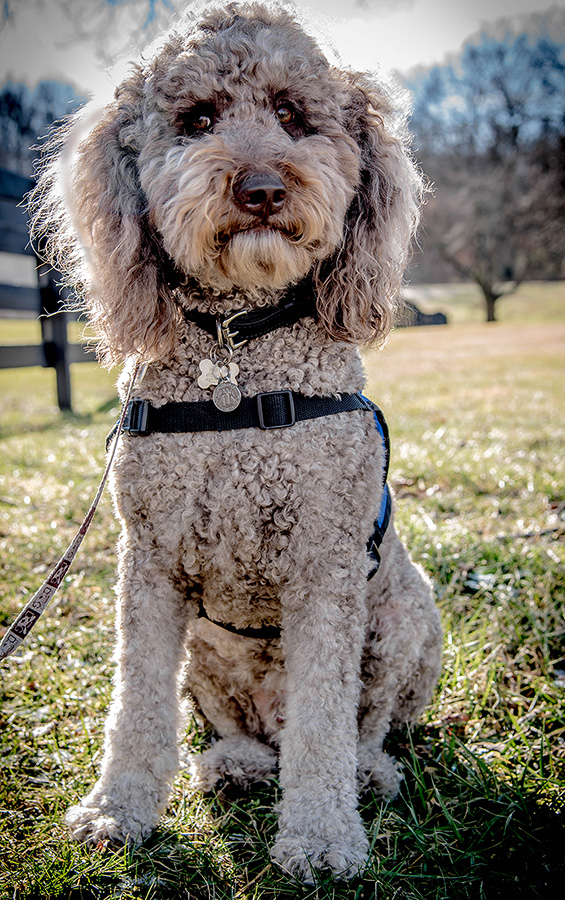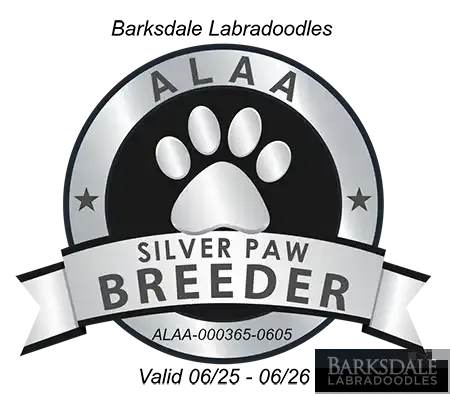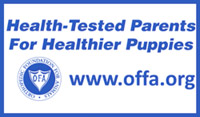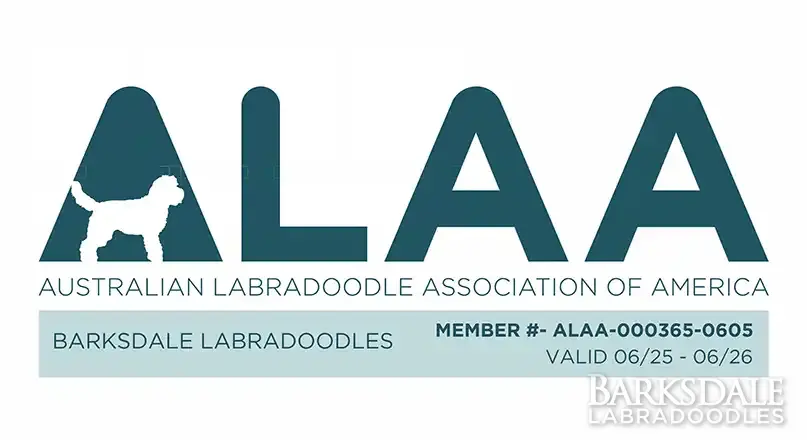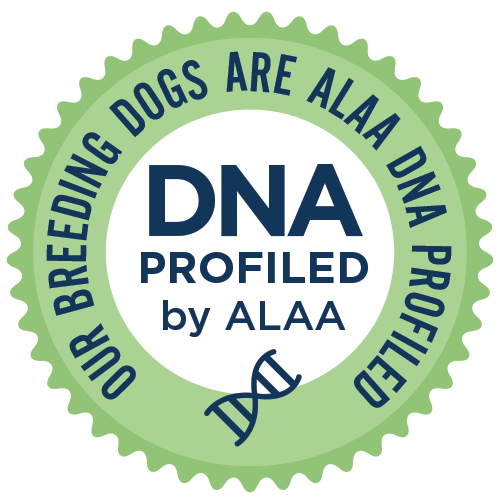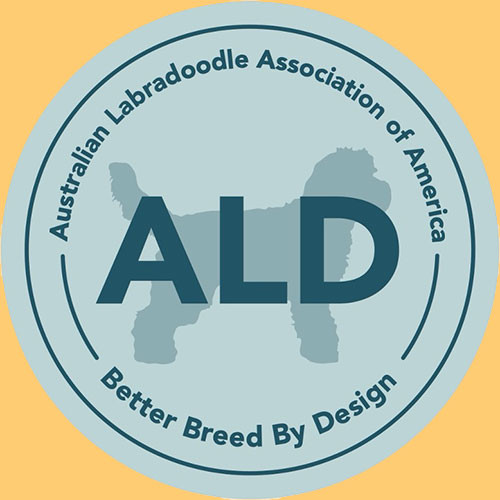“Therapy dogs provide companionship, love and comfort to people on a volunteer basis. With their handlers, they visit various facilities to meet people who may feel cut off from human companionship, who may profit from tactile sensation of petting an animal or who may need some good memories stimulated by seeing a friendly canine face and a wagging tail. Scientific studies have proven that petting and interacting with a dog lowers stress hormones and blood pressure and helps relieve depression. Besides the physical benefits, dogs make people smile and laugh, forgetting some of their own troubles for a while. Therapy dogs contribute much to improving the quality of life for the elderly, the ill, and the emotionally frail.” Barksdale Labradoodles on Therapy Dogs.
Barkley Beau is a fourth generation Australian Labradoodle. He is a Therapy Dog, registered with Therapy Pets Unlimited. Barkley lives in Ladd Park with Jerry and Cheryl Anderson. He joined the Andersons on February 9, 2015, when he was 9 weeks old. When Cheryl and Jerry picked Barkley up at the breeder, Al Gordy, Barksdale Labradoodles, in Magee, MS they met Barkley’s grandfather, Smooch, who was a certified therapy dog who had been recognized in MS for his service.
When Barkley was 4 months Jerry and Barkley began puppy training with Laura Dickson, the trainer at Pets Mart in Brentwood. Barkley’s first test was for AKC Puppy Good Citizenship. Jerry and Barkley began training with the goal of taking Barkley to visit patients at the Veterans Administration (VA) and Vanderbilt Children’s Hospitals. Jerry and Barkley spent nine months of weekly training in preparation for the evaluation. In April 2016 Jerry and Barkley passed the Therapy Pets Unlimited evaluation. It took another year to get the VA registered with Therapy Pets Unlimited.
Since April 2017 Jerry and Barkley, Team Doodle, have visited patients at the VA in Murfreesboro. They regularly visit two memory units, a hospice unit, and a long-term care unit. Jerry knew Barkley would be fine in his volunteer role but didn’t know how he himself would handle it emotionally. The joy and happiness on the Veterans’ faces give Jerry a real sense of pride in what Barkley is accomplishing. Veterans and staff alike look forward to Team Doodle visits. Cheryl’s sister, created Team Doodle shirts which Jerry dons for each visit. Team Doodle visits the VA two to three times a month for two to two and a half hours, visiting 15-20 veterans every visit.
Their VA Routine
If a Veteran is in a wheelchair Jerry tells Barkley to” visit” and he will put his head on the Veteran’s legs. If the resident is in bed, the command is “up” and Barkley puts his paws on the bed and lays his head on his paws. At one visit at the end of June with a Veteran in bed, Barkley put his paws on the bed. The Veteran began petting and baby talking to Barkley. When Jerry and Barkley left the memory unit the manager had tears in his eyes and reported the Veteran hadn’t responded to anyone in over two months. Another Veteran formerly trained military dogs and in retirement trained Metro police dogs. At their first visit, Jerry commanded Barkley “up.” Barkley responded by putting his paws on the bed. The vet said, “No, no Barkley. Jump.” Barkley jumped up in bed with him and laid down beside him.
Team Doodle also visit Wellington Place of Brentwood where they see between 12 to 15 residents. Just like the VA, the residents and staff look forward to the visits.
Jerry says “It is so gratifying to see Barkley bring so much joy to people. Barkley’s grandfather was a Therapy Dog. Others in his line are serving as service and therapy dogs.”
What’s Next?
Jerry and Barkley are currently preparing for an evaluation with Pet Partners, another certifying Therapy Pet organization. Once certified, Team Doodle will have the opportunity to volunteer at Vanderbilt Children’s Hospital.
Therapy dogs are being used in elementary schools, hospitals and even with high school students in stressful testing situations. Different from Service animals which are not to be approached while they are working, petting and hugging therapy animals is appropriate and encouraged. Generally speaking, institutions do not allow uncertified therapy animals to visit due to liability. Certified organizations provide liability insurance for their registered therapy animals.


